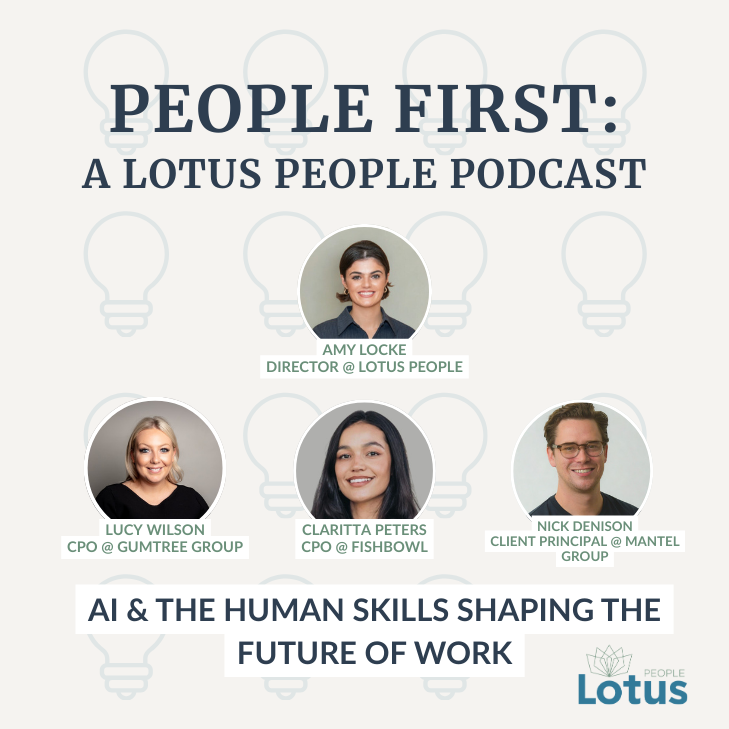As of 2024, a powerful generational shift is redefining the Australian workforce. For the first time, the workplace is no longer dominated by Baby Boomers or Gen X, but by Millennials and Gen Z. According to the Great Place to Work Insights Report 2024, these two generations now account for 67% of the workforce in Australia — a demographic transformation that is reshaping major culture across workplaces.
With this shift means evolving expectations: how people want to work, what they value in employers, and what they need from leaders. As Baby Boomers retire and Gen X move into more senior leadership roles, Millennials and Gen Z are stepping up — and demanding workplaces that are human-first, values-led and future-focused.
Rethinking Work: What Younger Generations Want
So what exactly is changing?
While headlines often lean into generational conflict, the reality is more nuanced. Millennials and Gen Z are not rejecting the fundamentals of good work. They still want progression, respect, stability and purpose. What’s changed is how they expect to access those things, and the kind of workplace environment they expect to do it in. Based on local data and workplace trends, here are five key shifts reshaping the employee experience in Australia.
1. Flexibility is non-negotiable
Remote work may have been a temporary response to the pandemic, but it’s now embedded in how younger workers assess an employer. We see this particularly in HR, administration and corporate services functions. Flexibility is no longer viewed as a perk but now as a non-negotiable.
And it's not just about working from home. Flexibility now spans how roles are structured, with a growing demand for part-time leadership and non-linear career paths, particularly among women, who still dominate part-time roles across all levels.
2. Face-to-face still matters — especially to Gen Z
Despite being raised in a digital world, 42% of Gen Z employees in Australia prefer face-to-face communication over digital methods like email or messaging. This challenges assumptions and reflects a deeper need for human connection, clarity and trust, especially in hybrid or remote environments.
This generation is proactive about building authentic relationships in the workplace and sees real-time interaction as key to resolving conflict, mentoring and collaborative problem solving.
3. Growth is expected — but not at the cost of wellbeing
Millennials and Gen Z want to grow — but not by burning out. Psychological safety, values-aligned leadership and managable workloads are essential. While older generations often “paid their dues” to climb the ladder, younger talent expects workplaces to support sustainable development from day one.
Career development opportunities that are visible, personalised and transparent are now core to talent attraction and retention strategies. As recruiters, we’re seeing that candidates increasingly think about growth opportunities as early as the first interview.
4. Purpose and trust matter more than perks
The Great Place to Work report released in 2024 found surprisingly little variation in satisfaction scores across generations, but one thing was consistent: trust in leadership is paramount. Regardless of age, employees thrive when they feel their leaders are honest, transparent, and aligned with company values.
Younger workers, particularly, look for alignment between a company’s values and its actions. It’s not enough to say the right things, organisations need to demonstrate values through behaviour, policy and accountability.
5. Advanced technology is expected, but not at the expense of humanity
Today’s workforce assumes modern digital systems and tools. Digital systems and tools are expected to be intuitive, fast and well-integrated. But they’re not the centre of the employee experience — people are.
Over-automation, rigid workflows or impersonal systems lead to disengagement. A people-first approach to tech integration, especially in recruitment, onboarding, and performance management, is critical.
What This Means for Employers, HR & Hiring Managers
This is not a temporary generational shift.
To stay competitive, organisations need to rethink how they attract, engage and retain the people shaping the future of work.
1. Rethink Your EVP (Employee Value Proposition)
Young job seekers are less impressed by ping-pong tables and more interested in purpose, leadership credibility, career growth and inclusion. Make sure these themes are front and centre in your employer brand messaging.
2. Build Flexible Career Pathways
Flexibility shouldn’t stall progression. Employers who offer part-time pathways into leadership and non-linear growth options will appeal to a broader, more diverse talent pool.
3. Balance Digital Tools with Human Interaction
Efficiency is important, but so is connection. Look for opportunities to create real moments of interaction in otherwise digital workflows, especially in onboarding, conflict resolution and feedback frameworks.
4. Go Beyond Diversity Statements
The future of inclusion is representation, psychological safety and accountability. Audit your internal processes to ensure that DEI is a felt experience and not just a policy.
5. Build Cultures of Trust and Autonomy
Employees want ownership over their work, but also to feel part of something bigger. Build cultures that empower without isolating and connect individual roles to wider organisational purposes.
It’s Not About Age — It’s About Alignment
While Gen Z and Millennials now form the majority of Australia’s workforce, the most effective teams remain intergenerational — blending experience, curiosity, pragmatism, and innovation.
But expectations have shifted. The future of work in Australia will be shaped by organisations who listen to their people, adapt their practices and invest in cultures that are built to last.
You may also like...





